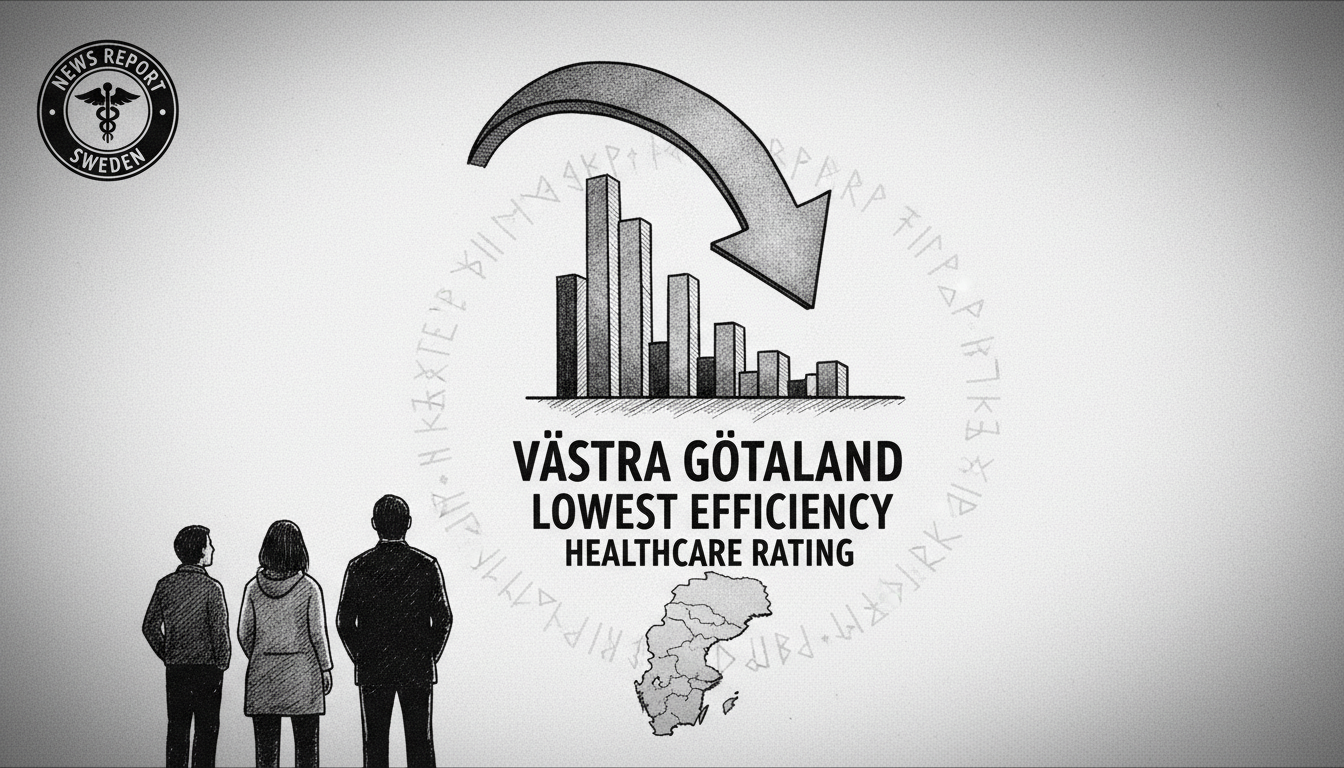A new report ranks healthcare in Västra Götaland as the least efficient in Sweden. The region delivers the poorest value for taxpayers' money compared to all other Swedish regions. The findings come from a comprehensive analysis of regional healthcare performance across the country.
Researchers evaluated multiple efficiency metrics across Sweden's 21 regions. They examined patient outcomes relative to healthcare spending. Västra Götaland consistently scored at the bottom of these rankings. The region serves approximately 1.7 million residents in western Sweden.
Local officials strongly dispute the report's methodology. Regional politician Janette Olsson questioned the findings in a public statement. She said the evaluation model fails to capture the complete picture of healthcare delivery. Olsson represents the Social Democratic party in regional government.
Sweden's healthcare system operates through 21 regional councils. Each region manages its own healthcare budget and services. This decentralized approach creates natural variations in service quality and efficiency. Taxpayers fund healthcare through regional income taxes averaging around 11% nationwide.
The efficiency gap between regions raises important questions about resource allocation. Why does healthcare performance vary so dramatically across Sweden? The answer involves complex factors including population demographics, management practices, and historical funding patterns.
Västra Götaland faces particular challenges with its diverse urban and rural populations. The region includes major cities like Gothenburg alongside remote coastal communities. Delivering consistent healthcare across such varied geography presents unique logistical hurdles.
This report arrives during ongoing national debates about healthcare reform. Many Swedes express growing concern about waiting times and access to specialists. The findings may influence upcoming regional budget discussions and policy decisions.
International readers should understand that Swedish healthcare remains largely public and universal. All legal residents receive comprehensive coverage regardless of employment status. The system generally receives high marks in international comparisons despite regional variations.
The real story here involves accountability rather than quality. Swedish healthcare maintains high standards overall. The question is whether taxpayers in different regions receive equal value for their contributions. This report suggests significant disparities exist.
What happens next? Regional politicians will likely face increased pressure to explain their performance. National health authorities may intervene with recommendations for improvement. The debate will continue as Swedes demand both quality care and fiscal responsibility.

